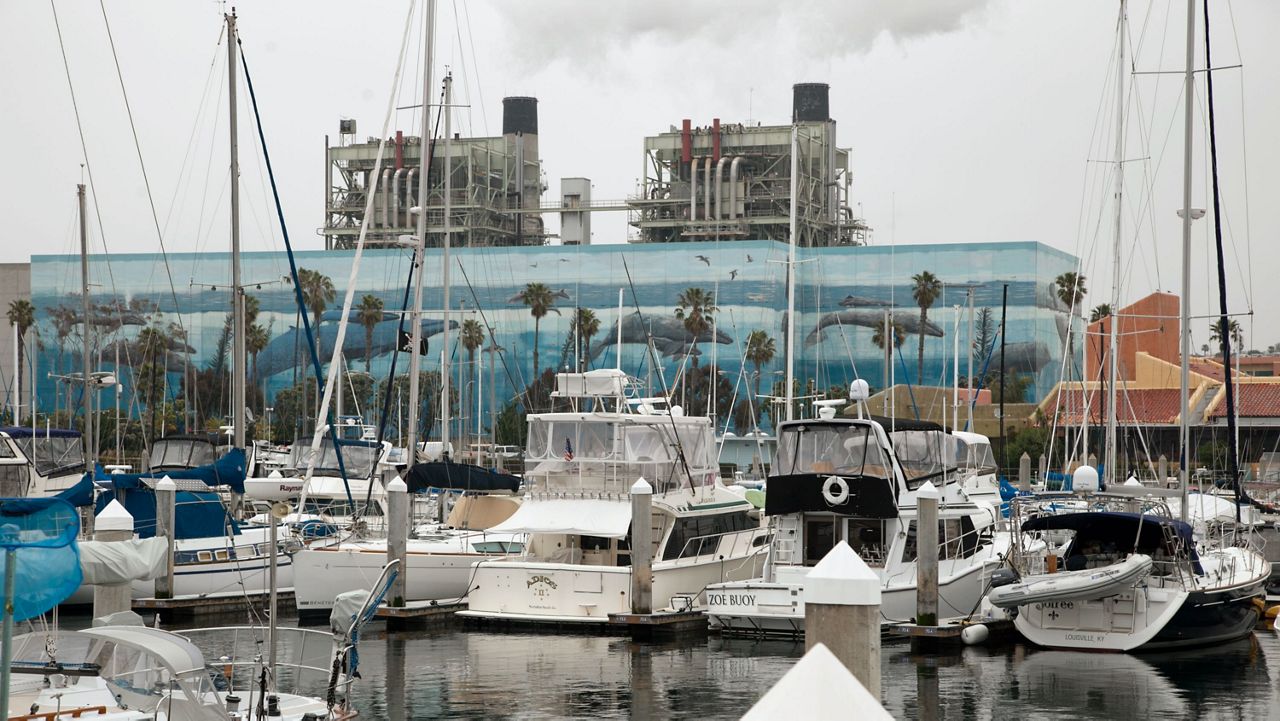The owner of an aging gas-fired power plant along California's southern coast won't be required to pay fines for some water pollution it causes through 2023, state water officials voted Tuesday.
The Redondo Beach Generating Station is one of four coastal power plants that were set to close in 2020 but had their operating lives extended to 2023. The state is keeping them open in an effort to avoid power blackouts on hot summer days when there may not be enough renewable energy available as people crank up their air conditioners.
The power plant uses ocean water to cool down equipment and spits it back out, a process known as once-through-cooling that pollutes the water supply. The plants are required to keep the water they discharge below a certain temperature to limit damage to marine life. They also have limits on how much dichloro-diphenyl-trichloroethane, or DDT, they can emit. Failure to meet those limits on the now-banned pesticide can bring thousands of dollars in fines.
The AES Corporation, which owns the Redondo Beach plant, petitioned the State Water Resources Control Board to waive the fines since the state needs the power plant to stay open until 2023. Its original plan to comply with the discharge requirements was to shut down.
In lieu of fines, the board voted to require the company to pay about $57,000 this year and next year to environmental funds working to mitigate water pollution. That's roughly equivalent to the fines the company was expected to owe for an expected 15 water temperature violations and four DDT discharge violations each year.
With its plan to shut down in 2023, the company doesn’t have enough time to adapt its plants to avoid polluting, said Phil Wyels, assistant chief counsel for water quality and administration for the water board.
The state is essentially compelling the plant to continue to operate “knowing full well that it has no way to correct the violations,” he said.
The board's vote Tuesday will allow the company to continue to support California's electric grid while investing in programs to benefit the environment, said Mark Miller, general manager for AES's generation portfolio, including the Redondo Beach station. The plant has made progress on reducing its environmental harm by lowering its liquid waste, shutting down some of its units, and complying with requirements for other pollutants like copper and nickel, Miller said in a letter to the board.
The plant does not use DDT in its operations. Rather, the chemical is already in the water that the plant sucks up to cool its equipment before it is discharged back into the ocean, Miller wrote.
Redondo Beach is a city of 75,000 south of Los Angeles where multi-million-dollar homes dot the coastline. Nick Ghirelli, a lawyer representing the city who argued against exempting the plant from the fines, said doing so wouldn't improve grid reliability or water quality. Though the plant is set to close in 2023, its life has been extended before and the city has no assurance that won’t happen again, he said.
“This cycle must stop,” he said.



